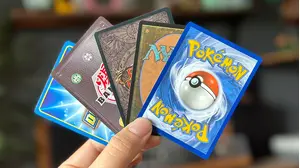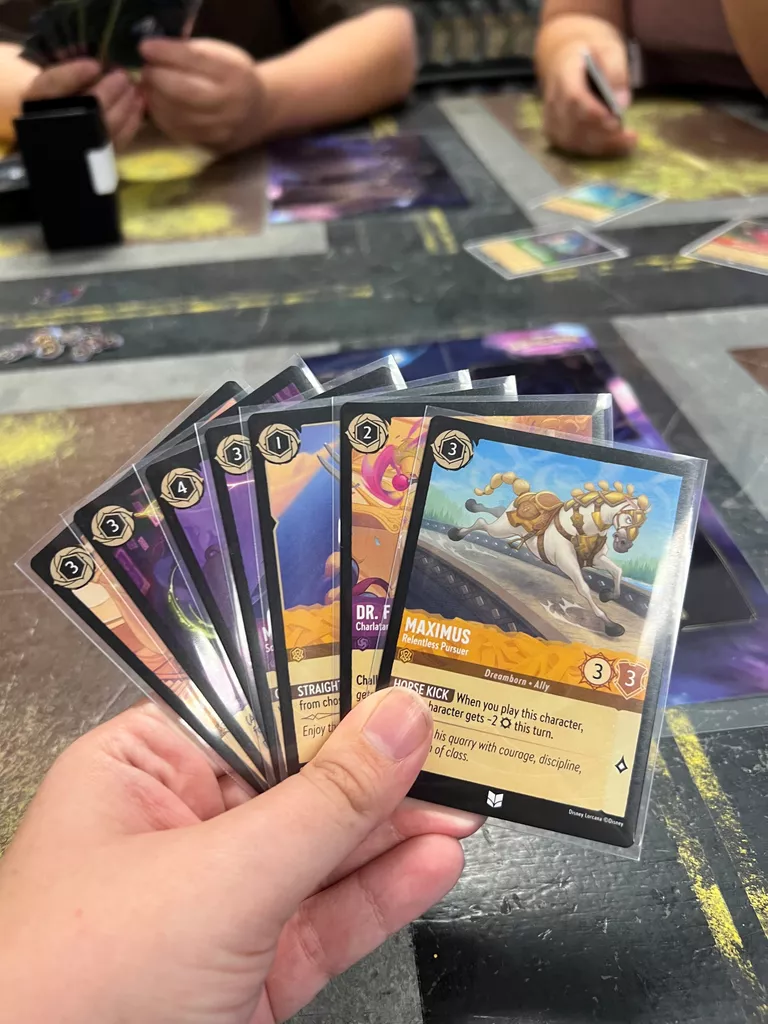TCG Triumph: Strategies for Dominating the Card Battleground
Trading Card Games (TCGs) involve players building decks of cards to compete. Popular examples include Magic: The Gathering and Pokémon TCG. Players aim to reduce opponent's points to zero. Deck building, rule comprehension, and keeping up with expansions are key. TCGs offer competitive play and some have digital versions.
Key Components of Trading Card Games.

Trading Card Games (TCGs) have become a popular form of entertainment for people of all ages. These games combine strategy, skill, and a touch of luck, making them a thrilling hobby for enthusiasts worldwide. Whether you're a newcomer or a seasoned player, here's everything you need to know about Trading Card Games.
1. What is a Trading Card Game?
A Trading Card Game is a type of collectible card game where players build personalized decks of cards and use them to compete against each other. The cards typically represent characters, creatures, spells, or abilities, each with specific attributes and abilities.

2. Popular Trading Card Games
There are numerous TCGs available, but a few have risen to the top in terms of popularity:
- Magic: The Gathering (MTG): Often considered the pioneer of TCGs, MTG was created by Richard Garfield and first released in 1993. It remains one of the most played and collectible card games in the world.
- Pokémon TCG: Based on the beloved Pokémon franchise, this TCG allows players to build decks around their favorite Pokémon characters and battle against other trainers.
- Yu-Gi-Oh!: This TCG emerged from the popular Yu-Gi-Oh! anime and manga series. It's known for its intricate strategies and extensive card pool.
- Hearthstone: While not a traditional TCG, Hearthstone is a digital card game developed by Blizzard Entertainment. It combines elements of TCGs with unique digital mechanics.
3. Basic Components
To play a Trading Card Game, you'll need:
- Cards: The heart of the game, these are divided into different types like creatures, spells, and lands (or energy sources). Each card has specific rules and attributes.
- Deck: Players build their decks by selecting a set of cards from their collection. Decks have specific rules, such as a minimum and maximum card limit.
- Playmat or Playing Surface: This provides a designated area to organize your cards and play the game.
- Tokens or Counters: Some cards may create tokens or require counters to keep track of various effects.
4. Gameplay Basics
The objective of most TCGs is to reduce your opponent's "life" or "hit points" to zero. This is typically achieved by summoning creatures, casting spells, and utilizing various card abilities. Players take turns, usually divided into phases like drawing, playing cards, attacking, and resolving effects.
5. Deck Building
A crucial aspect of TCGs is deck building. A well-constructed deck balances various elements like creatures, spells, and resources (lands or energy). It also considers synergy between cards and strategy.
6. Learning the Rules
Each TCG has its own set of rules and mechanics. It's essential to thoroughly understand the rulebook, which covers topics like card types, turn structure, and special abilities.
7. Expansions and Sets
TCGs frequently release new sets of cards, often called expansions. These introduce fresh strategies and mechanics, keeping the game dynamic and engaging. Collecting these expansions can be a vital part of the TCG experience.
8. Trading and Collecting
As the name suggests, trading cards is a fundamental aspect. Players often trade to complete their collections or obtain specific cards for their decks. Some cards can become highly sought after, creating a secondary market for buying and selling.
9. Competitive Play
Many TCGs have organized play events, from local tournaments to international championships. These events allow players to test their skills against a wider range of opponents and potentially win prizes.
10. Digital Versions
Some TCGs have digital adaptations, allowing players to enjoy the game online. These versions often come with additional features like matchmaking, tutorials, and regular updates.

People also ask (FAQ)
How do you play the card game trading?
What is the most popular TCG?
Why do people play trading card games?
Are trading cards like gambling?
How to Play Trading Card Games:
Playing a trading card game involves the following basic steps:
- Deck Construction: Players build a deck using a selection of cards from their collection. Decks typically consist of creatures, spells, and resource cards.
- Setup: Players shuffle their decks and draw an initial hand of cards.
- Turn Structure: Players take turns, usually consisting of phases like drawing a card, playing cards from their hand, attacking, and resolving effects.
- Objective: The primary goal is to reduce your opponent's "life" or "hit points" to zero, typically by summoning creatures, casting spells, and utilizing card abilities.
- Strategy and Tactics: Players need to strategize when to play certain cards, when to attack, and when to defend. Understanding card interactions and anticipating your opponent's moves is crucial.
- Winning the Game: The game ends when one player achieves the objective, either by reducing their opponent's life to zero or by fulfilling specific victory conditions.
Most Popular TCG:
As of my last knowledge update in January 2022, "Magic: The Gathering" (MTG) remains one of the most popular and widely played trading card games. It has a dedicated player base and a rich history dating back to 1993.
Why People Play Trading Card Games:
- Strategic Challenge: TCGs require strategic thinking, decision-making, and adaptability, making them mentally stimulating.
- Collecting and Customization: Players enjoy collecting rare or favorite cards and building unique decks to express their play style.
- Social Interaction: TCGs often bring people together, whether through casual play with friends or competitive tournaments, fostering a sense of community.
- Competitive Play: Many players enjoy the competitive aspect, testing their skills against others in tournaments and events.
- Escapism and Entertainment: TCGs offer a fun way to escape reality, immersing players in a world of fantasy and adventure.
- Secondary Market and Trading: Some players engage in the buying, selling, and trading of cards, which can be an exciting aspect of the hobby.
Are Trading Cards Like Gambling?
While trading card games involve an element of chance (due to drawing cards from a shuffled deck), they are generally not considered gambling. Gambling typically involves wagering money or valuables on an uncertain outcome with the intent of winning more in return. In TCGs, players buy card packs or individual cards, but the primary focus is on gameplay, collection, and strategy rather than monetary gain.
However, it's important to note that some individuals may develop compulsive behaviors related to collecting or trading cards, which could be indicative of a potential issue. Responsible and mindful engagement with TCGs is encouraged.
Trading Card Games offer a blend of strategy, creativity, and social interaction. Whether you're a casual player or aspiring champion, understanding these fundamentals will set you on the path to enjoying this dynamic and ever-evolving hobby. So, gather your cards, build your deck, and embark on your TCG journey.



